EPHAR Keynote Speakers
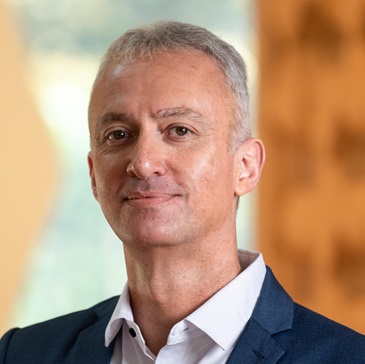
Arthur Christopoulos
Arthur Christopoulos is the Professor of Analytical Pharmacology and the Dean of the Faculty of Pharmacy & Pharmaceutical Sciences, Monash University, Australia. His research focuses on novel paradigms of drug action at G protein-coupled receptors (GPCRs), the largest drug target class for modern medicines, and incorporates computational and mathematical modelling, structural and chemical biology, molecular and cellular pharmacology, medicinal chemistry, and preclinical models of behaviour and disease. His work has been applied studies encompassing neurological and psychiatric disorders, cardiovascular disease, obesity, diabetes, chronic pain and addiction, and he has received substantial, long-term support from international and national competitive, charitable and commercial sources. In 2022, together with Profs. Robert J. Lefkowitz and Patrick Sexton, Prof. Christopoulos was an academic co-founder of Septerna Inc., a novel GPCR biotechnology company.
Professor Christopoulos has over 370 publications, including in leading international journals such as Nature, Science and Cell, and has delivered over 180 invited presentations. He has served on the Editorial Board of 8 international journals and was a Councillor of the International Union of Basic and Clinical Pharmacology (IUPHAR). He has also been the recipient of multiple awards, including the John J. Abel Award from the American Society for Pharmacology and Experimental Therapeutics; the Rand Medal from the Australasian Society of Clinical and Experimental Pharmacologists and Toxicologists; the British Pharmacological Society Gaddum Memorial Award; the IUPHAR Analytical Pharmacology Lecturer; the GSK Award for Research Excellence and a Doctor of Laws (Honoris Causa) from the University of Athens. Since 2014, Clarivate Analytics have annually named him a Highly Cited Researcher in ‘Pharmacology & Toxicology’, and in 2021 and 2022 also named him a Highly Cited Researcher in the additional category of ‘Biology & Biochemistry’. In 2017, he was elected a Fellow of the Australian Academy of Health and Medical Sciences, in 2018 as a Fellow of the British Pharmacological Society, and in 2021 he was elected a Fellow of the Australian Academy of Science for his seminal contributions to drug discovery.
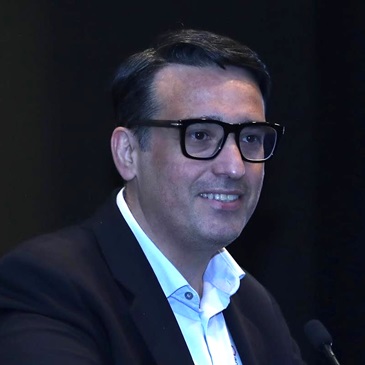
Evripidis Gavathiotis
Dr. Evripidis (Evris) Gavathiotis is a Professor of Biochemistry, Medicine and Oncology at Albert Einstein College of Medicine and Co-Leader of the Cancer Therapeutics Program at Montefiore Einstein Comprehensive Cancer Center. He received his B.Sc. in chemistry at the University of Crete, Greece and his Ph.D. in biological chemistry from the University of Nottingham, UK. He completed postdoctoral research in structural and chemical biology at Rockefeller University and at Dana-Farber Cancer Institute and he was junior faculty at Harvard Medical School. He joined Albert Einstein College of Medicine in 2011 as Assistant Professor and became tenured Full Professor in 2019. His research focuses on investigation of cell death mechanisms for the development of therapeutic strategies and prototype therapeutic small molecules for the treatment of various cancers and other diseases. Dr. Gavathiotis has pioneered mechanistic insights of key cell death proteins, validated novel targets for mitochondrial apoptosis, mitochondrial dynamics, chaperone-mediated autophagy, senescence and MAPK/ERK signaling and has developed first-in-class small molecules for several challenging targets that resulted into preclinical candidates. He has co-authored more than 80 publications, many of them in high-impact journals, and he has more than 45 United States-issued patents and patent applications. He has been honored with numerous awards including the Sidney Kimmel Scholar Award, the Young Chemical Biologist Award, the Pershing Square Sohn Prize and the Irma T. Hirschl Career Scientist Award. He has served on multiple NIH study sections and science advisory boards and has co-founded three biotechnology companies based on discoveries from his laboratory.
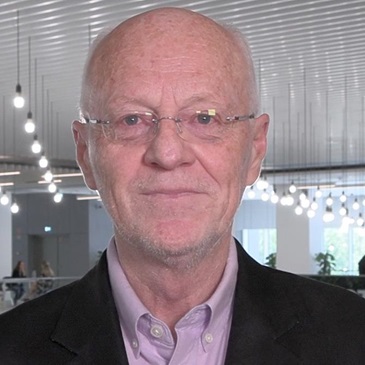
Peter Goadsby
Peter Goadsby FRS is Director, NIHR King’s Clinical Research Facility, Professor of Neurology, King’s College London, an Honorary Consultant Neurologist at King’s College Hospital and the Hospital for Sick Children, Great Ormond St, London, UK; and a National Institute for Health and Social Care Research Senior Investigator. He is Professor emeritus of Neurology, University of California, Los Angeles. His major research interests are in the basic mechanisms of primary headache disorders, such as migraine and cluster headache, in both experimental and clinical settings, and translating these insights into better management.
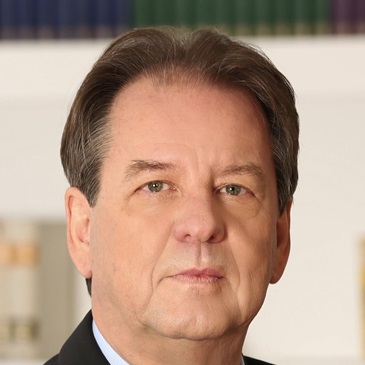
Achilleas Gravanis
Achilleas Gravanis is Professor of Pharmacology Medical School University of Crete and Researcher at the Institute of Molecular Biology & Biotechnology-FORTH. He served as member of the Biomedical Research Program Committee of the European Commission, as Chairman of the Sectional Committee of Life Sciences, Hellenic National Research & Technology Council, also as member of the Council of the Hellenic Research & Innovation Foundation in charge of Life Sciences. Vice-Chair Hellenic Pharmacological Society, Affiliated Research Professor Center for Drug Discovery, Faculty of Pharmacy Northeastern University Boston. Affiliated Principal Investigator at Emulate, a Harvard/WYSS spinoff. Co-founder of biotechnology spinoffs BioNature and ReNeuroCell Therapeutics. He published 165 papers (PubMed, h-index:52). His research group is developing synthetic neurotrophin receptor agonists, with neuroprotective and neurogenic properties targeting neurodegenerative diseases. Additionally, his group is focusing on 3D microscaffold bioengineering and human neural stem cell technologies to develop neuroimplants for spinal cord injury and brain trauma.

Stefan Knapp
Professor Stefan Knapp studied chemistry at the University of Marburg and the University of Illinois. He obtained his PhD in protein crystallography at the Karolinska Institute in Stockholm and continued his career at the Karolinska Institute as a postdoctoral researcher (1996-1999). From 1999 to 2004 he worked at Pharmacia Corporation and from 2004 to 2015 at the Structural Genomics Consortium (SGC) at Oxford University. From 2008 to 2015 he was Professor of Structural Biology at the University of Oxford (UK) and from 2012 to 2015 he was Director of Chemical Biology at the Target Discovery Institute. In 2015, he joined the University of Frankfurt as Professor of Pharmaceutical Chemistry. Since 2017 he is also the CSO of the SGC at the University of Frankfurt.
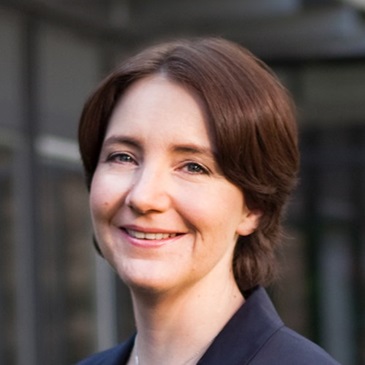
Kristina Lorenz
Kristina Lorenz received her PhD at the Institute of Pharmacology and Toxicology in Würzburg in 2005 and worked as post-doctoral research fellow and group leader in Dresden and Würzburg, where she was appointed as Professor of Molecular Pharmacology in 2013 (University of Würzburg/Comprehensive Heart Failure Center). In 2016 she became the Director of the Biomedical Research department at the Leibniz Institute for Analytical Sciences – ISAS – e.V. in Dortmund and Professor of “Mechanisms of cardiovascular diseases” at the University of Duisburg-Essen. Since 2019, she is the Head of the Institute of Pharmacology and Toxicology. Her research interest are signaling pathways involved in heart failure and cardiac hypertrophy with major focus on mitogen-activated protein kinase (MAPK) and G protein coupled receptor (GPCR) signaling.
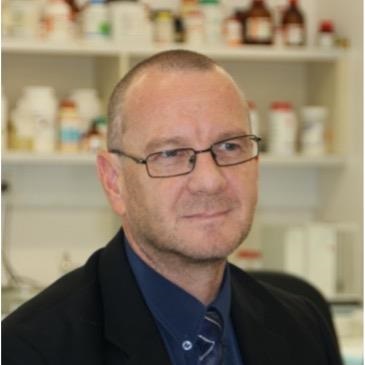
Patrick Sexton
Patrick Sexton is a NHMRC Senior Principal Research Fellow and Director, ARC Centre for Cryo-electron Microscopy of Membrane Proteins (www.ccemmp.org). He is a leader in the study of GPCRs, particularly for allosteric modulation and biased agonism. Recently, his team has applied cryo-EM to elucidation of the structure and dynamics of GPCRs. Prof. Sexton has published over 335 peer reviewed journal articles and has been cited >30,000 times (Google Scholar). He is a Clarivate Analytics Highly Cited Researcher (since 2014), a corresponding member of NC-IUPHAR, a member of the Faculty of 1000 and an elected Fellow of the British Pharmacological Society (BPS). Prof. Sexton’s awards include the ASCEPT Lecturer award, Endocrine Society (Australia) Senior Plenary award, Rand Medal (ASCEPT), Paxinos-Watson Award (Australian Neuroscience Society), Vane Medal (BPS), Gordon Hammes Lectureship Award (American Chemical Society) and the GSK Research Excellence award. Prof. Sexton is also a co-founder of Septerna Inc and DACRA Tx.
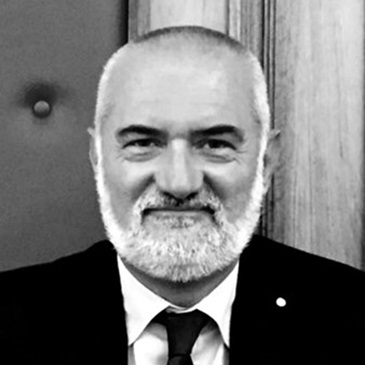
Claudiu T. Supuran
Claudiu T. Supuran is professor of pharmaceutical chemistry at University of Florence. He was a visiting professor in universities in USA, Australia, Argentina, Brasil, etc. His main research interest is the medicinal chemistry/pharmacology of carbonic anhydrases, designing novel classes of enzyme inhibitors/activators, deciphering their mechanism of action, discovering new isoforms and their role in disease (cancer, obesity, epilepsy, neuropathic pain, arthritis) etc. One of the sulfonamide inhibitors discovered in his laboratory is currently in Phase II clinical trials for the management of metastatic, hypoxic tumors. He has published more than 2200 papers and 12 books in these fields, and is Editor‐in‐Chief of Expert Opinion on Therapeutic Patents, Journal of Enzyme Inhibition and Medicinal Chemistry, Current Enzyme Inhibition.
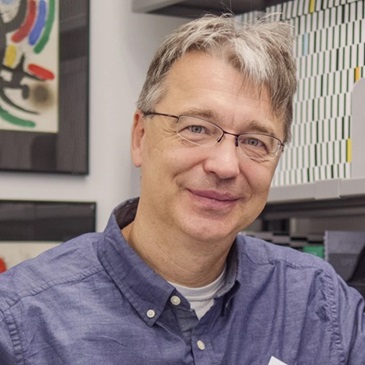
Csaba Szabo
Professor Szabo is an internationally recognized expert in the fields of oxidative and nitrosative stress, gaseous transmitters, cell death, cell dysfunction, cardiovascular, and inflammatory mechanisms. In the mid 90’s he has pioneered the concept that identified the pathogenetic role of the nuclear enzyme PARP in promoting cell necrosis, and its roles in cardiovascular and inflammatory diseases. His applied research and development work in this area led to novel drug candidates that have progressed into clinical trials. Over the last decade, he has developed a significant track record in the biology of hydrogen sulfide, where he has identified multiple regulatory roles of this mediator in angiogenesis, reperfusion injury and cancer.
His background – two Ph.D. degrees in physiology and pharmacology, coupled with his medical background [M.D.] – and his diverse research interests, which range from basic cell death mechanisms to vascular injury, diabetes, shock, heart failure, inflammatory diseases, diabetes and its complications) as well as his dual activities in academia (basic research) and in industry (applied research and drug development) are substantial. His expertise range from the regulation of nitric oxide synthases, through oxidant and antioxidant mechanisms including peroxynitrite, and cellular inflammatory mechanisms and pathways including neuroimmunomodulation, and the bacterial protein flagellin. His background and expertise are internationally recognized in the pathogenesis of circulatory shock, diabetes, myocardial infarction, cardiomyopathy, stroke, neuroinflammation, and diabetic complications.
He has published over 500 original research articles. With a H-index of 125, he has been in the top 10 most cited pharmacologists in the world for the last decade. He was recently listed as one of the top 400 most infuential biomedical scientists in the word.
Currently at the Department of Pharmacology at the University of Fribourg, Switzerland, Professor Szabo leads a multidisciplinary team of investigators with expertise in molecular biology, cell biology, pharmacology, physiology, pathophysiology, medicinal chemistry and translational science.
Professor Szabo has received numerous awards, including the Novartis Award of the British Pharmacological Society, the Dennis Gabor Innovation Award, the Texas Star Award, the Pharmacia-ASPET Award for Experimental Therapeutics and the Vane Medal of the British Pharmacological Society. He serves or served on the Editorial Board of numerous leading journals, including the British Journal of Pharmacology, the Journal of Pharmacology and Experimental Therapeutics and Molecular Medicine. He is an Elected Fellow of the British Pharmacological Society and an Elected Member of the American Society for Clinical Investigation.



